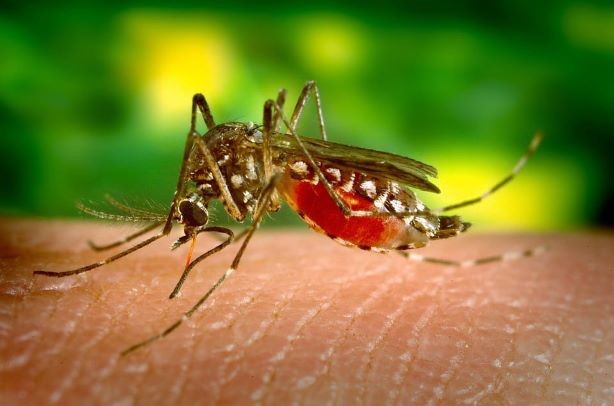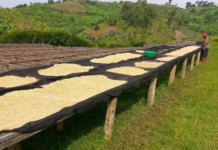Researchers
from the International Centre of Insect Physiology and Ecology (icipe) and the
University of Glasgow, UK, have identified a microbe in malaria
mosquitoes that is capable of blocking transmission of the disease from the
insects to people.
In a study published in Nature
Communications journal (paper link: https://go.nature.com/2xwzbyl), the scientists
report that the microbe, which they have named Microsporidia MB, was found in Anopheles mosquitoes.
The study was conducted on mosquitoes in their natural environments, mainly on
the shores of Lake Victoria in Kenya. The researchers established that
mosquitoes carrying Microsporidia
MB do not harbour malaria parasites either in nature, or after
experimental infection in the laboratory. The research also showed that Microsporidia MB is
passed from female mosquitoes to their offspring at high rates, and the microbe
does not kill or cause obvious harm to the mosquito host.
“The bodies of all animals are inhabited by microbes which are either
detrimental – in other words pathogens; or neutral / beneficial symbionts,”
explains Dr Jeremy Herren, current icipe
Scientist who led the study while jointly affiliated with icipe and the University
of Glasgow, UK. “Healthy insects often have microbial symbionts inside their
bodies and cells, which can have major effects on the biology of their hosts.
At icipe, my
team’s research is focused on this type of microbial symbiont, especially when
they may be interfering with transmission of diseases by insects.”
Key characteristics
Although the new Microsporidia MB symbiont is naturally found at relatively low levels in malaria mosquitoes in Kenya, the researchers believe that there may be ways to increase the proportion of moquitoes that carry it, to block their capacity to transmit malaria. This type of transmission-blocking intervention has been shown to have transformative potential for controlling Dengue, a disease transmitted by Aedes aegypti mosquitoes. Until now, there have been few examples of microbes that affect malaria transmission mosquitoes.
“We were excited to find that the Microsporidia MB symbiont is transmitted from mother mosquitoes to their offspring, and that the microbe does not compromise the ability of mosquitoes to survive,” adds Lilian Mbaisi, a Kenyan scholar who was involved in the study, as part of her MSc research at icipe, registered at the University of Nairobi.
The authors note that these two attributes are key, as they could enable the spread of symbionts through mosquito poplulations, and their maintainance across many malaria transmission seasons.
The researchers stress that further studies will be needed to determine precisely how Microsporidia MB could be used to control malaria. The next phase of the research will investigate the dynamics of the microbes in large mosquito populations in screen house ‘semi-field’ facilities.

The case for scientific and technological advancements
While significant
achievements have been made in tackling malaria, with a reduction of cases by
an estimated 40% noticeable by 2015, progress has now plateaued. Therefore,
there is a need to ensure current control measures are maintained and
strengthened, while also advancing novel control strategies. Moreover, the
World Health Organization (WHO) has recently warned that any interruptions in
malaria control efforts due to the COVID-19 pandemic could increase malaria
incidences and impact.
Further, as icipe Director
General, Dr Segenet Kelemu observes: “Given recent developments in Africa and
globally, the importance of scientific advancement has never been more real.
The ongoing coronavirus pandemic, the current locust outbreak in eastern
Africa, and the fall armyworm invasion that has been ongoing since 2016, place
a most urgent call-to-action for science and scientists, policymakers and
development partners.”
She adds: “These events also serve as a clear demonstration of the opportunity
cost brought on by deficiencies in support for critical research and the
effective translation of knowledge into innovative solutions. We must all
remain alert and unwavered; aware that every breakthrough is vital.”
And as icipe
commemorates its 50th anniversary this year, it is with a
recommitment to the long-running vision of nurturing the best and
brightest young talent. This goal will ensure that Africa’s has adequate
scientific capacity and leadership, for the sake of continent, and that of
humanity, animals and the environment across the globe.









